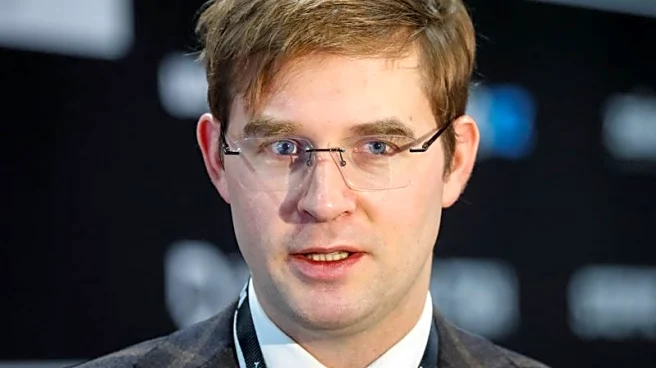What's Happening?
Justine Lindsay, recognized as the NFL's first transgender cheerleader, has publicly claimed that her departure from the Carolina Panthers was due to her transgender identity. Lindsay, who joined the Panthers' cheerleading squad, the TopCats, in 2022, left the team in August. In a recent livestream with Gaye Magazine, Lindsay expressed her belief that she was cut from the team because of her transgender status, despite having no personal grievances against the Panthers. She emphasized her appreciation for the organization but felt that her dismissal was a setback for both herself and the youth. Lindsay's departure coincided with President Trump's executive order, which restricts transgender individuals from participating in women's sports teams
and using women's facilities in schools receiving federal funds.
Why It's Important?
Lindsay's claims highlight ongoing challenges faced by transgender individuals in professional sports and other public domains. Her situation underscores the broader societal debate over transgender rights, particularly in the context of sports and education. The executive order signed by President Trump has significant implications for transgender athletes, potentially limiting their opportunities and access to sports teams and facilities. This development may influence public policy and societal attitudes towards transgender rights, affecting not only sports organizations but also educational institutions and their compliance with federal regulations. Lindsay's experience may serve as a catalyst for further discussions and advocacy regarding inclusivity and equality for transgender individuals.
What's Next?
The Panthers have yet to publicly respond to Lindsay's claims, and it remains to be seen how this situation will unfold. The executive order by President Trump may prompt other sports organizations and educational institutions to reassess their policies regarding transgender athletes. Advocacy groups and civil rights organizations may increase their efforts to challenge such policies and promote inclusivity. The broader societal conversation around transgender rights in sports and education is likely to continue, potentially influencing future legislation and public opinion.


















